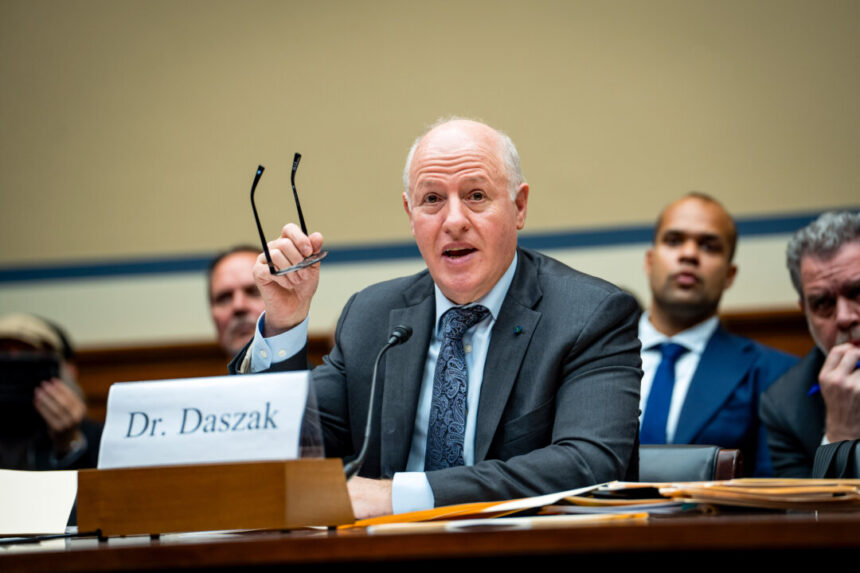The House Select Subcommittee on the Coronavirus Pandemic has warned that if their requests are not responded to promptly, a subpoena will be issued. Specifically, they are seeking more information from a scientist who collaborated closely with a Chinese lab in the city where the first COVID-19 infections were reported.
The committee investigating the COVID-19 outbreak has demanded further answers from Peter Daszak, the president of EcoHealth Alliance, threatening to issue a subpoena if he does not comply. Daszak has recently had his funding suspended by the U.S. Department of Health and Human Services and faces potential debarring from future funding. The committee alleges that EcoHealth Alliance, under Daszak’s direction, was involved in risky gain-of-function research in China on bat coronaviruses.
Despite maintaining his innocence and denying any involvement in gain-of-function research, Daszak has vowed to challenge the allegations with substantial evidence. The House committee has emphasized that Daszak must respond to their requests or face a subpoena.
The controversy surrounding EcoHealth Alliance and its alleged funding of research in China has raised concerns about the risks and benefits of gain-of-function research. Supporters argue that such research helps scientists understand the behavior of viruses and develop effective counter-measures, while opponents warn of the potential dangers of making viruses more lethal.
Daszak and EcoHealth Alliance have been accused of supporting research in China that involved collecting bat viruses and conducting experiments at the Wuhan lab. The National Institutes of Health (NIH) raised concerns about EcoHealth’s handling of its research, particularly regarding the lack of transparency and communication about experimental findings.
The Biden administration has taken steps to suspend funding to organizations involved in such research, including EcoHealth Alliance and the Wuhan Institute. The question of whether U.S. tax dollars were used to fund gain-of-function research in China remains a contentious issue, with differing opinions on the definition and implications of such research.
Former CDC director Dr. Robert Redfield has alleged that taxpayers unknowingly funded risky gain-of-function research at the Wuhan lab, adding to the ongoing debate over the origins of COVID-19 and the role of research in understanding and combating future pandemics.
Dr. Redfield’s Testimony on Funding Gain-of-Function Research at Wuhan Lab

“I think there’s no doubt that NIH was funding gain-of-function research,” Dr. Redfield told Rep. Nicole Malliotakis (R-N.Y.), who then asked the former CDC official, “Is it likely that American tax dollars funded the gain-of-function research that created this virus?” referring to the hypothesis that the pathogen behind COVID-19 leaked from a lab in Wuhan.
He replied in the affirmative, adding that he believes funding came from the NIH and other federal agencies.
This has been disputed by Dr. Anthony Fauci, former NIAID director, as well as by former NIH Director Dr. Francis Collins, Mr. Daszak, and others.
“The NIH has not ever and does not now fund gain-of-function research in the Wuhan Institute of Virology,” Dr. Fauci said at a Senate hearing on May 11, 2021.
In his testimony on Capitol Hill, Dr. Redfield said that the COVID-19 pandemic presented a “case study” on the potential dangers of gain-of-function research and called for such work to be halted.
Zachary Stieber contributed to this report.






